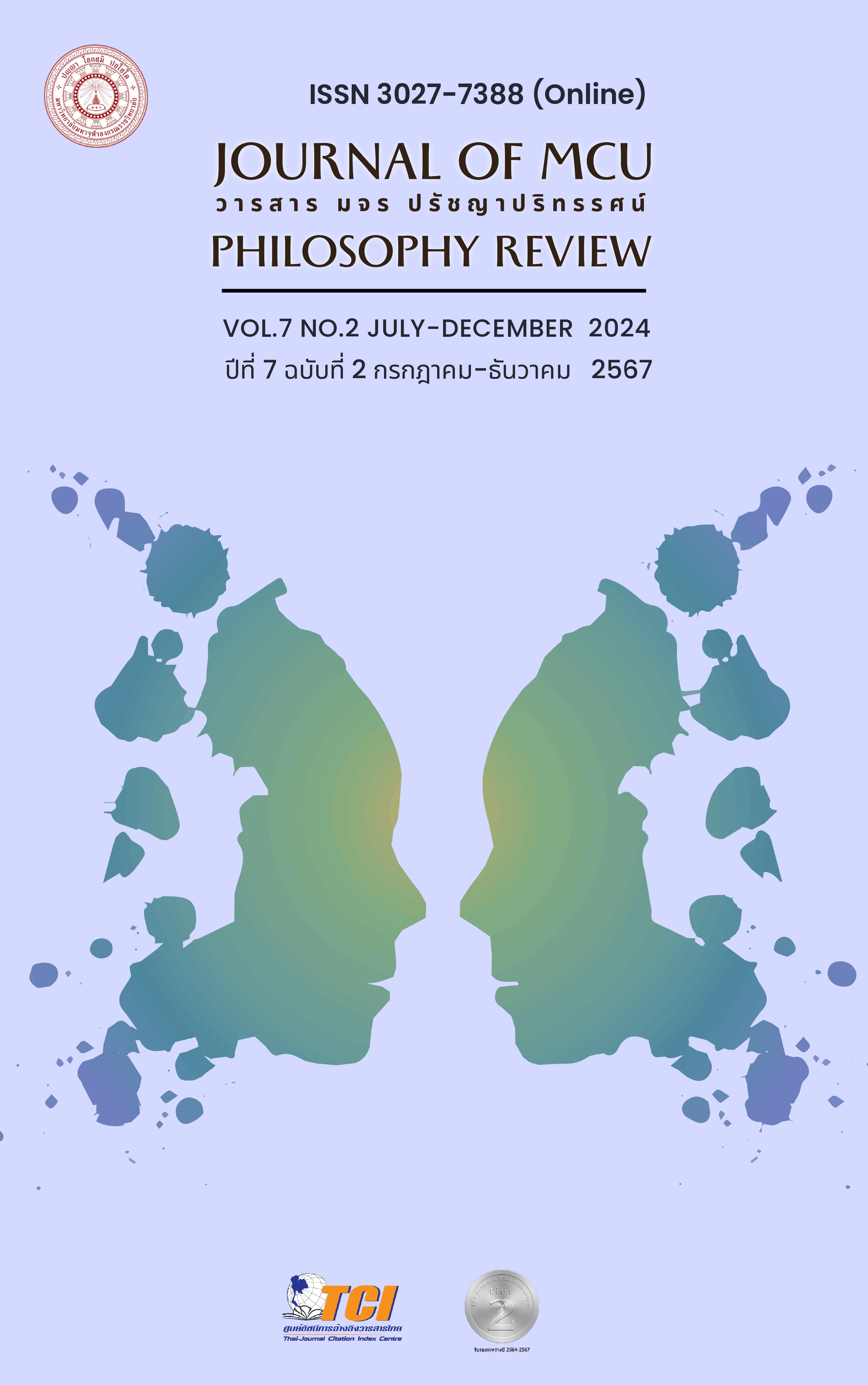The Supervision Education Principles for Non-Formal and Informal Education in the New Normal Period
Main Article Content
Abstract
The purpose of this research was to identify the Supervision Education Principles for Non-Formal and Informal Education in the New Normal Period by using the methodology of Ethnographic Futures research: EFR The researcher selected Experts/specialists. The research instruments were Unstructured Interview. The data was analyzed by content analysis. The research finding was as follow: The Supervision Education Principles for Non-Formal and Informal Education after New Normal Period is 5 Principles give the detail 1. Creating an engagement strategy Emphasis on participation of both the public and private sectors, thinking together, planning together, emphasizing cooperation in supervision, participate in implement the suggestions for Improving and develop supervision process policies, as fast as possible. 2. Develop morale, compliment, and positive reinforcement, and encourage for develop their work. 3. Creating a new dimension of concept, new thinking, new doing, seeking the special abilities of each person, provide opportunities to express and develop abilities support the freedom to thinking differently, support paradigmship. 4. Adjudge the academic paradigm. Supervising should up to date on new knowledge such as curriculum development, learning management, Measurement and evaluation educational supervision and research along with exchanging academic knowledge with all agencies involved in organizing non-formal and informal education, Create benefits for target groups of all ages. 5. Creating opportunities for professional development: Self-improvement in accordance with working condition, Inquiring necessity new knowledge, policies, plans, strategies of educational agencies or stakeholders in education management. Share and discussion knowledge among the educational institution or network, develop a professional learning community, bringing knowledge and experience to develop educational institutions, and networks.
Article Details

This work is licensed under a Creative Commons Attribution-NonCommercial-NoDerivatives 4.0 International License.
บทความที่ได้รับการตีพิมพ์เป็นลิขสิทธิ์ของวารสาร มจร ปรัชญาปริทรรศน์
ข้อความในบทความที่ได้รับการตีพิมพ์ในวารสาร ถือเป็นความรับผิดชอบของผู้เขียนบทความ และข้อคิดเห็นนั้นไม่ถือว่าเป็นทัศนะและความรับผิดชอบของกองบรรณาธิการวารสาร มจร ปรัชญาปริทรรศน์
References
เบญจมาศ ชาติศักดิ์ยุทธ. (2560). “รูปแบบการเป็นพี่เลี้ยงและการสอนงานของผู้บริหารสถานศึกษาเพื่อพัฒนากระบวนการเรียนรู้ของครูในโรงเรียนสังกัดสำนักงานเขตพื้นที่การศึกษามัธยมศึกษา เขต 39.” ปริญญาวิทยานิพนธ์ครุศาสตรมหาบัณฑิต สาขาวิชาการบริหารการศึกษา. บัณฑิตวิทยาลัย มหาวิทยาลัยราชภัฏอุตรดิตถ์.
พระครูธรรมธร ปุญญาพัฒน์ แสงวงศ์ดี. (2565). การนิเทศงานในองค์กรบริการทางสังคม. วารสารรัฐศาสตร์ มหาวิทยาลัยมหามกุฏราชวิทยาลัย. 6(2): 113.
“พระราชบัญญัติส่งเสริมการเรียนรู้ พ.ศ.2566”. (2566). ราชกิจจานุเบกษา เล่ม 140, ตอนที่ 20 ก (19 มีนาคม 2566): 61-62.
มาลี บุญสิริพันธ์. บทความวิถีชีวิตใหม่. (2567). สืบค้นข้อมูลเมื่อ 10 พฤษภาคม 2567. จาก https://www.thaipbs.or.th/news/content/292126
สำนักงาน กศน. กระทรวงศึกษาธิการ. (2564). นโยบายและจุดเน้นการดำเนินงาน สำนักงาน กศน. ประจำปีงบประมาณ พ.ศ. 2564. กรุงเทพฯ : พริกหวานกราฟฟิค.
สำนักงาน กศน. กระทรวงศึกษาธิการ. (2565). การประเมินผลการดำเนินงานการศึกษานอกระบบและการศึกษาตามอัธยาศัยของสำนักส่งเสริมการศึกษานอกระบบและการศึกษาตามอัธยาศัยตามแนวพระราชบัญญัติส่งเสริมการศึกษานอกระบบและการศึกษาตามอัธยาศัย. กรุงเทพฯ: รังษีการพิมพ์.
วรากรณ์ สามโกเศศ. (2564) บทบาทของสถาบันการศึกษาบนความเสี่ยงของยุคแห่งการปรับตัว. วารสาร สังคมศาสตร์และมนุษยศาสตร์, 2(2): 1.
วินัย เกษมเศรษฐ. (ม.ป.ป). หลักการและเป้าหมายของการนิเทศการศึกษา. หน่วยศึกษานิเทศก์ กรมสามัญศึกษา. อัดสำเนา.
วลัยพรรณ บุญมี. (2556). สหสัมพันธ์คาโนนิคอลของปัจจัยการนิเทศการบริหารโรงเรียน. ปริญญาปรัชญาดุษฎีบัณฑิต สาขาวิชาการบริหารการศึกษา. บัณฑิตวิทยาลัย: มหาวิทยาลัยศิลปากร.
Tusi, M. (1994). The roots of social work supervision: an historical review. Clinical Supervision, 15(2): 191-198.


